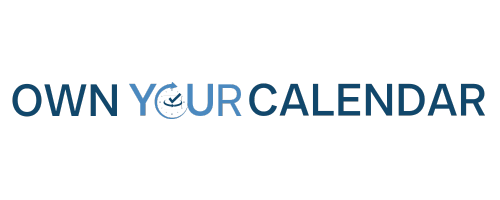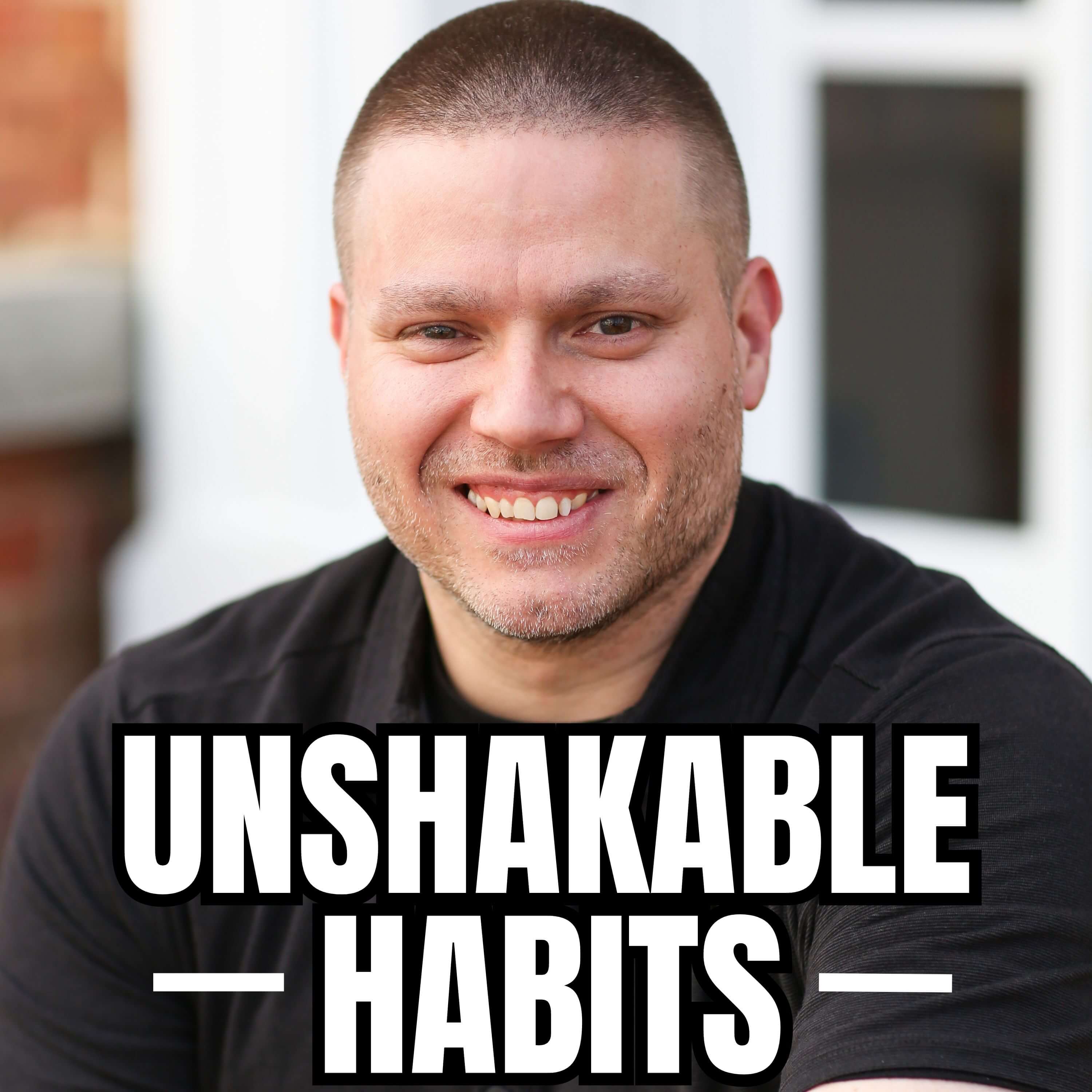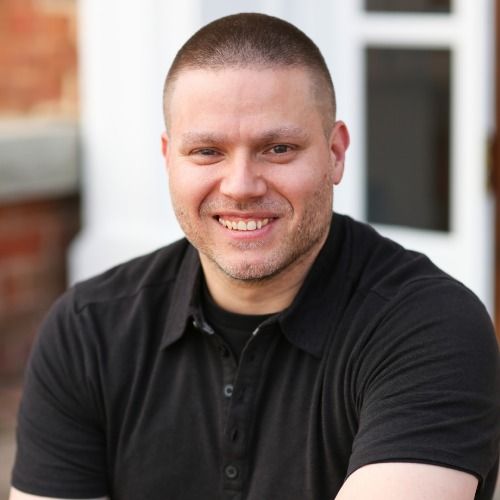Episode 67
Unshakable Insights: Stephen's Key Takeaways for Finding Balance in Work, Relationships, and Health
In the final part of our 5-part series with Christine Jewell, Stephen Box reflects on the key insights and takeaways from the week. Join us as Stephen shares his personal thoughts on integrating faith, health, relationships, and productivity, and how Christine's wisdom can help you create unshakable habits in your life. Don't miss this wrap-up episode that ties together all the transformative lessons from the series.
Love the Podcast?
Rate on Apple Podcast | Rate on Spotify | Rate on PodChaser
Book Your Free RoadMap Call: https://unshakablehabits.com
Liked this episode? Share it and tag me @unshakablehabits
Love the show? Leave a review and let me know!
CONNECT WITH STEPHEN: Website | Instagram | Facebook | YouTube | LinkedIn
This podcast is hosted by Captivate, try it yourself for free.
Copyright 2023 Unshakable Habits, Stephen Box LLC, all rights reserved
Privacy Policy Disclaimer Terms and Conditions Affiliate Disclosure
Transcript
Welcome to Unshakable Habits.
Stephen Box:I am your host, Stephen Vox.
Stephen Box:And if you have been hanging out with us this week, you know we've
Stephen Box:been chatting with Christine Joel, a faith based executive coach
Stephen Box:and author of Drop the Armor.
Stephen Box:And today I wanted to just take an opportunity to give you some
Stephen Box:of my unshakable insights, my key takeaways From this week and also
Stephen Box:share some of my personal experiences with some of these takeaways.
Stephen Box:So starting on Monday, we did what I call the introductory episode of
Stephen Box:the week, where we talked about this idea of being constantly busy, but
Stephen Box:always feeling like no matter how hard you work, you just can't get ahead.
Stephen Box:You're always behind.
Stephen Box:And Christine had this gem, I think it was towards the end of the episode, where
Stephen Box:she said, What if we chose our overwhelm?
Stephen Box:I mean, a light bulb moment for me when she said it, right?
Stephen Box:Because Instantaneously, I went to stress management.
Stephen Box:I talk about stress management is not getting rid of stress.
Stephen Box:It's about managing it and it's about having the right amount.
Stephen Box:It's about finding that stress sweet spot because some stress
Stephen Box:is actually positive for us.
Stephen Box:Too much of it is negative, but the right amount is positive.
Stephen Box:And this is a slightly different context.
Stephen Box:But, if we're choosing our overwhelm, we're using, we're changing the context
Stephen Box:of overwhelm, let me say it that way.
Stephen Box:Where we're looking at, can I be overwhelmed with joy?
Stephen Box:Can I be overwhelmed with grace?
Stephen Box:Can I be overwhelmed with all these positive things?
Stephen Box:And that is such a great reframe.
Stephen Box:And, Christine points out that, Really, in order to do this, it's all about
Stephen Box:being intentional about where you spend your energy and your time, not spending
Stephen Box:your time just being busy for the sake of being busy or doing things that make
Stephen Box:other people happy, but really doing it because it's what you want to do.
Stephen Box:And a big part of that is Knowing how to figure out what your values are, what
Stephen Box:your goals are, and then prioritizing your task around those, aligning that
Stephen Box:to your values and your goals, and then setting boundaries to make sure that
Stephen Box:you're able to prioritize those tasks.
Stephen Box:Such a huge thing for so many people to be able to learn to do that.
Stephen Box:And part of that is learning to say no.
Stephen Box:if you want to talk about managing overwhelm and you want
Stephen Box:to talk about creating balance in your life, learning to say no.
Stephen Box:is the most crucial skill.
Stephen Box:this is something I personally have been working on for a couple years now.
Stephen Box:And I will tell you, once you get it down, once you can learn how to phrase it, and
Stephen Box:really develop it, it's a game changer.
Stephen Box:And maybe one day I'll do a full episode on how we actually say that, right?
Stephen Box:How do we say no to people without being rude?
Stephen Box:Because I've got it figured out now.
Stephen Box:I'm not going to say I'm 100 percent perfect, but I've got
Stephen Box:it pretty well figured out now.
Stephen Box:And It took some time.
Stephen Box:So then Tuesday we started talking about work stuff and really this idea of
Stephen Box:productivity addiction and it's something that honestly Christine pointed out
Stephen Box:oftentimes comes from a place of a seeking validation through constant activity.
Stephen Box:Let that sink in for a second.
Stephen Box:Do you find that you've ever had that experience where you are?
Stephen Box:Always doing stuff, you're always busy, you're trying to do all these things,
Stephen Box:and it's not because that's what you want to be doing, it's because you feel
Stephen Box:like there's an expectation, even if that expectation is only in your head,
Stephen Box:even if it's not real, it can feel very real, and it creates this need to always
Stephen Box:be doing something, and it becomes an addiction, and it most of the time is us
Stephen Box:trying to gain the approval of someone else, whether that's your boss, so you
Stephen Box:can get a promotion or a raise, or whether it's our spouse or our kids or whatever.
Stephen Box:We're always trying to do things to make ourselves look better
Stephen Box:in the eyes of someone else or to gain their approval, right?
Stephen Box:Then the other thing she talked about was this idea of needing to redefine
Stephen Box:what productivity means to us.
Stephen Box:Focusing on the meaningful actions rather than just the busy work.
Stephen Box:So really, what are those things that are going to push everything forward?
Stephen Box:I remember she gave an example from a client call that she had where
Stephen Box:the client was like, I got to do all this stuff and all this stuff.
Stephen Box:And she said, if you were to take all that off the table, if you
Stephen Box:just clean slate, think about what you actually were needing to do.
Stephen Box:What is the one thing you can do right now that would make a huge difference?
Stephen Box:And if you guys want more on that concept, do you want to dive more into that?
Stephen Box:I highly recommend the book, The One Thing really dives into this idea of
Stephen Box:what's the one thing you can do right now that will make everything else easier.
Stephen Box:It's not just about doing literally one thing.
Stephen Box:It's about What thing do I need to prioritize?
Stephen Box:And then the other thing is taking breaks, allowing yourself to recharge, right?
Stephen Box:And we're talking not just vacation time here, right?
Stephen Box:I know a lot of people over the summer they take vacation and that's great
Stephen Box:But we're talking about regular just throughout the day little mental
Stephen Box:breaks that you can take Not just waiting for the weekend, right?
Stephen Box:It's not about just grinding through till Friday and then taking a little
Stephen Box:Saturday and Sunday This is about how can you find time to recharge your batteries
Stephen Box:every day and a big part of that in my mind We'll talk about here in a few
Stephen Box:minutes, but a big part of that in my mind is about eating the right foods.
Stephen Box:It's about having the right mindset.
Stephen Box:It's about getting enough sleep and it's about consistently exercising.
Stephen Box:Those things will help to recharge your batteries and it will get your
Stephen Box:battery stronger to begin with.
Stephen Box:definitely something to do.
Stephen Box:Then we moved into talking about relationships and one of the big mistakes
Stephen Box:That Christine pointed out is that we fail to communicate our needs and expectations
Stephen Box:clearly, and this leads to resentment.
Stephen Box:A lot of times we think that we've been clear.
Stephen Box:We think that it should be obvious.
Stephen Box:We expect our partners to maybe just read our minds and
Stephen Box:know what it is that we need.
Stephen Box:Or we feel like we've communicated it and the reality is we haven't.
Stephen Box:And a lot of times what it comes down to also is, we talked earlier
Stephen Box:about the importance of saying no.
Stephen Box:Sometimes we've agreed to do things for our significant other
Stephen Box:that we really didn't want to do.
Stephen Box:It's not really within our wheelhouse or maybe it's something that we
Stephen Box:don't really have time for right now.
Stephen Box:But we're going to go ahead and just do it just because.
Stephen Box:Thanks.
Stephen Box:We feel like we're obligated to not because we want to not because there's a
Stephen Box:desire to do it not because it's coming from That place but because we feel
Stephen Box:like we have to do it right and when you do that You're going to end up filling
Stephen Box:Resentment when you don't get that same courtesy back to you Or when you don't
Stephen Box:communicate it in the first place and people don't do what you think they
Stephen Box:should be doing and you're doing things, you're going to start to have resentment.
Stephen Box:And so much of this comes from doing things that you feel obligated to do
Stephen Box:versus things that you want to do.
Stephen Box:It's not coming to things with a full cup, so to speak.
Stephen Box:And Christine goes on to point out that relationships thrive
Stephen Box:on Mutual understanding and effort, not on assumptions and
Stephen Box:unspoken resentments, right?
Stephen Box:So exactly what I just got through, highlighting to you guys there.
Stephen Box:And then investing time in our relationships is just as important
Stephen Box:in any other area of our life.
Stephen Box:It's about quality, not just quantity.
Stephen Box:And to me, this is a big one because a lot of us, we spend a lot of time at work.
Stephen Box:We spend a lot of time with the kids.
Stephen Box:We spend a lot of time doing everything except for focusing on our relationships.
Stephen Box:Absolutely huge.
Stephen Box:And then, yesterday, we actually got into this conversation about health.
Stephen Box:health, I 100 percent believe, is not just a physical thing.
Stephen Box:it's about mental health, emotional health, spiritual
Stephen Box:health, and physical health, right?
Stephen Box:but when we talk about the physical health aspect of things,
Stephen Box:we're talking about things like exercise, nutrition, sleep.
Stephen Box:And one of the parts of that conversation we had was especially
Stephen Box:around with Christine being a faith based coach is this idea a lot of
Stephen Box:Christians have of, Trying to take care of your body, trying to, build
Stephen Box:muscle or look a certain way, gets into idolizing yourself a little bit, right?
Stephen Box:And it can feel wrong to do that.
Stephen Box:And the thing is, Christine points out, and I 100 percent agree with her
Stephen Box:on this, that God gave us this body.
Stephen Box:Our body is a temple that the Holy Spirit dwells in, and we have an obligation,
Stephen Box:really, to maintain that temple, right?
Stephen Box:That, to keep things nice.
Stephen Box:And that doesn't mean that you have to go out and have big muscles, or six pack abs,
Stephen Box:or flat stomach, or anything like that.
Stephen Box:It just simply means that you take care of yourself.
Stephen Box:But again, take care of yourself doesn't just mean physically, it also means
Stephen Box:Making time for your mental health, your spiritual health, your emotional health,
Stephen Box:your relational health, all of those things are important aspects of health.
Stephen Box:And if you guys want to know more about that, I encourage you to look
Stephen Box:into the concept of deep health.
Stephen Box:so Christine goes on to say that, she believes that when we integrate our faith
Stephen Box:into our health practices, we find a deeper sense of purpose and fulfillment.
Stephen Box:And again, I 100 percent agree with this.
Stephen Box:I find that when I get up in the morning and I carve out time for
Stephen Box:some kind of movement, Some kind of prayer time, some kind of devotional
Stephen Box:reading time, that it just makes such a huge difference in my entire day.
Stephen Box:which goes, really to her next point of saying it's essential to
Stephen Box:create daily habits that nourish both our body and our spirit.
Stephen Box:again, I'm jumping ahead here, but it's like perfect alignment, We often overlook
Stephen Box:the spiritual aspect of health, but it's just as important as the physical,
Stephen Box:something that Christine also pointed out.
Stephen Box:And again here, I agree with this because if we don't have a connection
Stephen Box:to something bigger, we don't have a sense of purpose in life.
Stephen Box:If we don't feel that connection, a lot of times we can start to devalue ourselves.
Stephen Box:We start to feel like we don't have the value.
Stephen Box:And if you don't feel like you have value, it's very difficult
Stephen Box:to take care of yourself.
Stephen Box:So I think maybe even it's more important, right?
Stephen Box:Meditation and prayer can be powerful tools to center
Stephen Box:yourself and maintain balance.
Stephen Box:Again, this goes back to what I said about morning routine, daily
Stephen Box:habits, regular rest and recovery periods to recharge your batteries.
Stephen Box:It all ties back in.
Stephen Box:And then finally, Christine talks about building a
Stephen Box:supportive community around you.
Stephen Box:can greatly enhance your journey towards holistic well being.
Stephen Box:And again, like I said earlier, when you look at this concept of deep health, it
Stephen Box:is physical health, but it's also mental health, emotional health, and then it's
Stephen Box:environmental health, it's relational health, and it's spiritual health.
Stephen Box:Those are the components of deep health.
Stephen Box:And so when you look at it from that perspective, You started to see that all
Stephen Box:of these things are so important to have.
Stephen Box:So guys, that is our recap for this week's episodes.
Stephen Box:Next week, we are going to be talking about Something that I know a lot of us
Stephen Box:struggle with, something I struggled with for a very long time and really only in
Stephen Box:the last few years have I truly got this.
Stephen Box:I've had pieces of success over the years with it, but it's only
Stephen Box:been the last couple years I've really put all the pieces together.
Stephen Box:And that's over on overcoming setbacks, dealing with slow
Stephen Box:progress, and managing stress.
Stephen Box:Believe it or not, those are all completely intertwined.
Stephen Box:They have a lot to do with each other.
Stephen Box:So next week, it's just going to be me here talking to you, so make sure
Stephen Box:you tune in every day because I'm going to really dive into this topic
Stephen Box:and we're going to give you some actionable steps that you'll be able to
Stephen Box:take with you by the end of the week.
Stephen Box:And you will become so much better at overcoming your setbacks and
Stephen Box:dealing with problems, slow progress.
Stephen Box:as well as managing your stress.
Stephen Box:So with that guys, thanks for tuning in today.
Stephen Box:And as always, I want to remind you that while none of us are born
Stephen Box:unshakable, we can all become unshakable.
Stephen Box:Because becoming unshakable is a choice.



